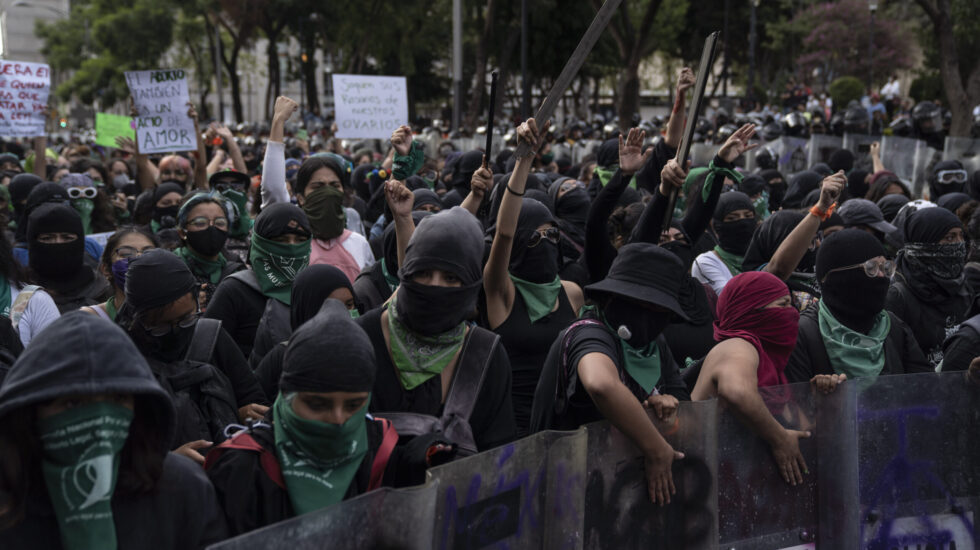Mexico’s Supreme Court decriminalized abortion on Tuesday, handing a major victory to advocates of women’s health as the United States heads in the opposite direction.
“Today is a historic day for the rights of all Mexican women,” said Supreme Court Chief Justice Arturo Zaldivar on Tuesday.
The Washington Post provides context:
The vote comes as a powerful women’s movement is transforming Mexico. Female politicians now make up half of the National Congress, and an ambitious constitutional reform passed in 2019 aims to ensure gender equality in senior government positions. While abortion remains illegal in most of Latin America, there has been a surge in demonstrations demanding more rights for women, particularly focused on rising violence.
“This step has broken the stigma a little. But I believe that we still have to change the social aspect,” 26-year-old Karla Cihuatl, a pro-choice demonstrator in Saltillo, told Reuters.
The Associated Press explains Mexico’s evolving relationship with abortion:
Mexico is a heavily Roman Catholic country. The church was a powerful institution through colonial times and after Mexico’s independence, but a reform movement in the mid-19th century sharply limited the church’s role in daily life. Anticlerical efforts at times led to bloodshed, especially during the Cristero Rebellion from 1926 to 1929.
The topic still remains controversial in Mexico, however. The divide was on display Tuesday as groups from both sides demonstrated outside the court. Dozens of people kneeled in prayer in front of the court.
Women in Mexico have taken to wearing green bandanas to signal their support for abortion, a symbol first adopted in Argentina, where the medical procedure became legal earlier this year.
“The pro-rights ‘Green Wave’ is poised to take over the region and bring it to the 21st Century, even as we see the United States Supreme Court and Texas walk women back into darkness,” Paula Avila-Guillen, executive director of the Women’s Equality Center, said in a statement.
The New York Times reports that the pro-abortion ruling by Mexico’s Supreme Court will take some time to implement nationwide:
The court’s decision applies immediately only to the northern state of Coahuila, where the justices said that a law mandating up to three years in jail for people who get abortions was unconstitutional. Their ruling set a legal precedent for the nation — but putting it into practice requires either legal challenges in each of the 28 states in Mexico that still criminalize the procedure, or a change in law by state legislatures.
Local activists have already begun working on a plan to force states to fall in line with the court’s ruling and revise their laws, though the fight to make abortion legal and safe across the country could be a long one. Only Mexico City, and three other states, allowed abortions on request before Tuesday’s decision.
“We are already organized and ready to take advantage of the opportunity that the Court’s new decision offers,” said [Arely Torres Miranda, a reproductive rights advocate in the state of San Luis Potosí.] “What we need to do is make them change the law.”
Once abortion is legal across Mexico, Texas women recently shut off from the procedure may travel across the border. According to The AP:
The decision could potentially open another option for Texas women seeking legal abortions. For years, some women in south Texas have crossed the border to go to Mexican pharmacies to buy misoprostol, a pill that makes up half of the two-drug combination prescribed for medical abortions.
Legal abortions could become accessible now along Mexico’s long shared border with Texas.



